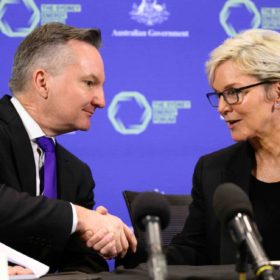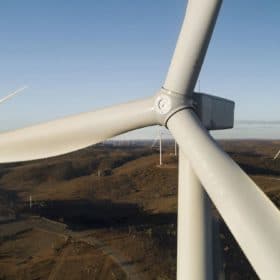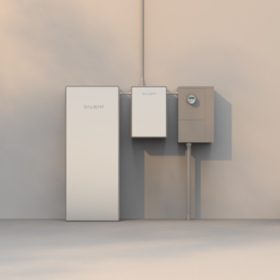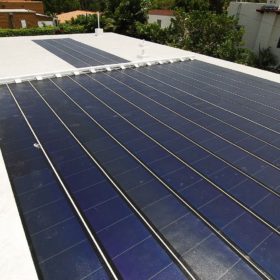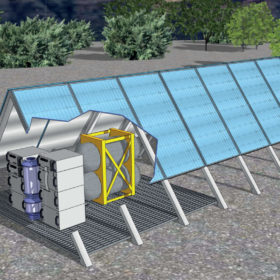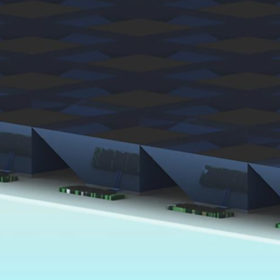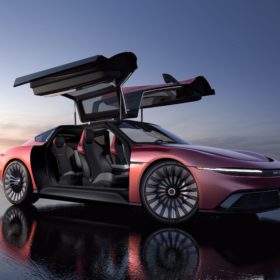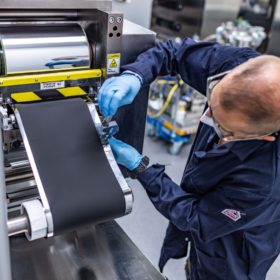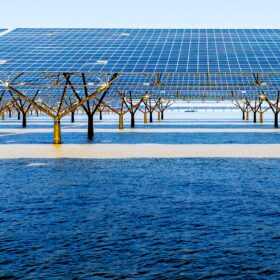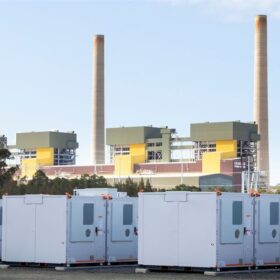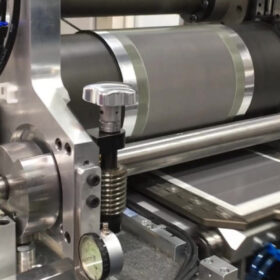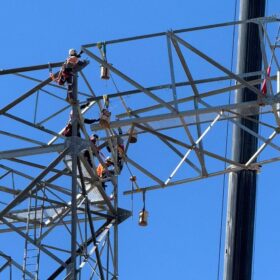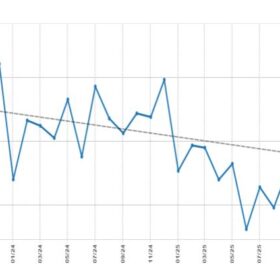Australia & US sign energy agreements to mitigate China over-reliance, ensure supply chains cannot be weaponised
Speaking at the Sydney Energy Forum, leaders from Australia and the US have highlighted the importance of not only transitioning to renewables, but of ensuring the supply chains used to make the technologies do not remain as concentrated as they are today.
GE turns to Australia for critical renewable materials
US giant General Electric (GE) has signed an agreement with Australia’s Arafura Resources, provisionally agreeing to offtake from the company’s flagship Nolans Project in the Northern Territory, which is aiming to become a major supplier of critical materials for wind turbines and electric vehicles.
Water-based zinc-ion battery for stationary energy storage
Salient Energy developed the water-based zinc-ion battery to have the same power, performance, and footprint as lithium-ion systems without the safety risk.
Thin film solar may have carbon intensity advantage over silicon
Thin-film cadmium telluride panels may have a US$0.02 to US$0.04 per watt carbon cost advantage over traditional polysilicon, said the National Renewable Energy Laboratory in an analysis of embodied carbon, embodied energy, and energy payback.
Aussie solar-powered direct air carbon capture tech secures backing from Facebook, Google
Australian company AspiraDAC, which uses solar powered Direct Air Capture (DAC) technology to remove carbon from the atmosphere, has been selected to be part of the first round of purchases from Frontier, a program backed by Facebook and Google’s parent companies, Meta and Alphabet.
Glass pyramid concentrator for solar cell applications
Stanford University scientists have built an optical concentrator that purportedly harvests more than 90% of the light that hits its surface.
Single-axis trackers on commercial rooftops increase generation by 37%
Alion Energy trackers thread the return-on-investment needle with productivity gains from white roofs and bifacial modules, while design aggressively maximises module count.
Rio Tinto joins industrial heavyweights in green hydrogen fund raise
Rio Tinto has joined a group of industrial heavyweights including Equinor, Amazon and Mitsubishi Heavy Industries as investors in United States-based renewable hydrogen start-up Electric Hydrogen which plans to build green hydrogen production facilities at scale for industrial and infrastructure applications.
Delorean goes back to the future with new EV
Electric vehicle buyers could soon have another brand to add to their list of potential cars with the DeLorean Motor Company revealing details of its all-electric Alpha 5, a modern reimagining of the 1980s cult classic sports car made famous by the Back to the Future film trilogy.
US startup unveils non-flammable batteries for EVs, storage
Alsym will produce its new batteries – made of readily available materials, without lithium or cobalt – for electric vehicles, stationary storage, and marine applications.
